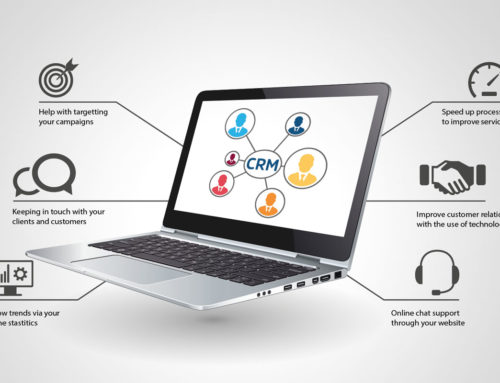Business Trends That Will Affect the Way We Do Business
This Year and Beyond
Some of these business trends are sources of good business opportunities; others are trends we need to incorporate into our small business practices to stay competitive and keep or grow our market share. Here are five business trends that small businesses can profit from this year and beyond.
1. Cloud Computing
Small businesses can directly benefit from the cloud computing business trend by using cloud-based applications to cut down on the expense and trouble of doing the same thing themselves.
Using someone else’s mail servers through the internet can be much more cost-effective (and hassle-free) than setting up your own email server in-house, for example, – especially if you don’t have a dedicated IT person or department. Moving to a cloud-based accounting application can allow you to check accounts, send invoices, track expenses and more from your mobile phone or tablet.
(There are disadvantages of cloud computing for small businesses, too, but they are outweighed by the advantages in my opinion.)
But with increasing numbers of businesses looking to contract out business processes, small businesses are also well-positioned to benefit from the cloud computing trend by picking up some business. It’s not size or location that matters with the cloud; it’s expertise.
2. Social Media
Social media is one of those business trends your small business can’t afford to ignore. Facebook isn’t just something that kids are using any more and social networks are increasingly becoming business networks as people’s social/personal/business lives converge.
Simply put, if that’s where they are, that’s where you need to be if you want to sell more widgets.
That doesn’t necessarily mean that you need to get heavily into social media marketing this year (although if you do it properly, it can be a real sales booster). But you do need to at least start developing a social media presence for your small business.
If you’re just starting out with using social media for business, my advice is to choose one social media tool and work with it over time. For instance, you might put up a Facebook fan page for your business and try to engage customers and get them interested in your products and services.
3. Mobile Marketing
Remember when people used to carry around a laptop and a phone? It’s something we’re seeing less and less of because increasingly, what people used to do on their laptops, they now do on their phones. You don’t need a separate computer to browse the web, work on documents or play games because phones are computers.
One implication of this trend is that you need to be sure your business is mobile friendly. Are your web pages etc. available in mobile versions so they look good on phone screens? Another implication is that some of the desktops/laptops in your business may be redundant or replaceable with phones or tablets.
And a third is that it’s time to develop a mobile marketing strategy.
Using mobile devices to research products is becoming common consumer behavior and you don’t want your business to be left off-screen. Here are 8 Ways to Make Mobile Marketing Part of Your Marketing Mix.
4. Rise of the Phone/Tablet App
This trend is also consumer-driven and closely related to mobile computing. Above, I said the phone is a computer. But it’s also so much more, thanks to the public’s insatiable appetite for phone apps. Business-wise, phone apps are replacing everything from mileage log books through credit card readers. An iPhone app called Square, for example, lets you accept credit card payments by plugging a card reader into your iPhone. (The iPad can also be used as a POS system.)
Your small business can benefit from this business trend by using phone apps to eliminate some of your other office equipment and supplies. You might also benefit by creating and selling your own phone app. The Amazon App is an (in)famous example of a shopping app; it scans bar codes and comparison shops, letting customers know if they can get a better deal through Amazon’s website or not.
5. Corporate Social Responsibility
Corporate social responsibility isn’t just for big businesses; small businesses, too, can reap great benefits by being perceived as good members of the community. It matters to consumers; a 2010 survey by Toronto-based advertising agency Bensimon Byrne found that 66 percent of Canadians said that corporate reputation has a significant impact on the brands they choose (Chris Atchison, Being a good corporate citizen helps small guys compete, The Globe and Mail). And it matters to other businesses, who want to make sure that their suppliers are as green and socially responsible as possible and appropriate to their own corporate images.
The benefit? Besides being a good thing to do it itself, it allows small businesses to compete with larger companies and can significantly improve the bottom line. If you don’t already have a corporate social responsibility strategy, this is the year to get one in place and start publicizing your work for good causes.






